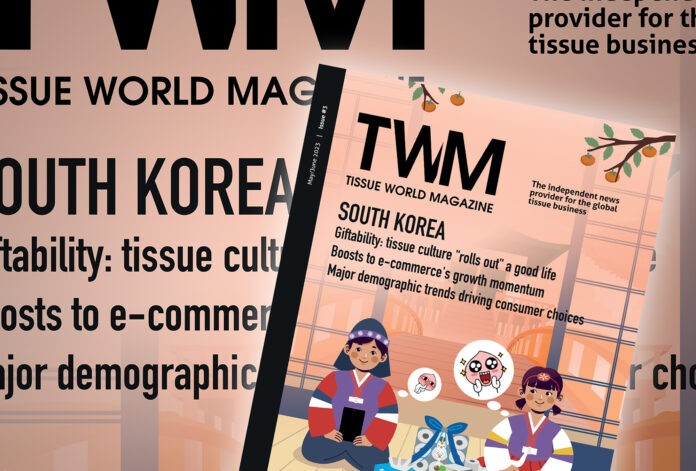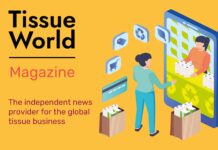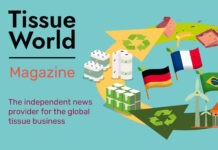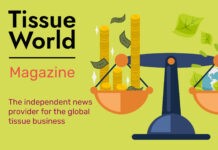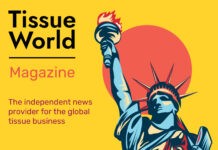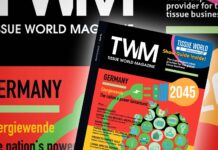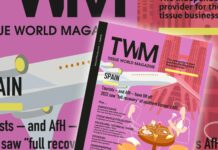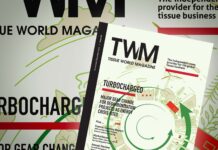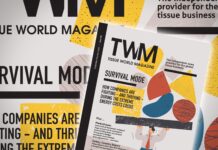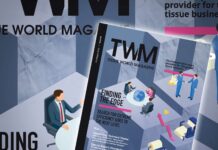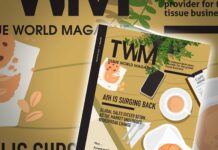TWM was welcomed in South Korea in 2012 to report on its successes… brilliant electronics, exported at the right price, an internet speed of 16Mbps at home (the US was 5.8Mbps at the time), and its developing tissue sector.

Economic growth of 3.6% was driven by a robust 10% growth in progressive and cutting-edge exports. But the economy had only recently emerged from the ripple effects of the Korean War and remained in many ways short of the advancement suggested by its international reputation. Per capita income levels were low against other developed markets.
Today, South Korea is an export-driven industrial powerhouse with one of the most developed economies in Asia. The emergence continues, but is beset by the recent challenges familiar to all. High inflation hitting logistics, labour, oil, and energy. The Korean Won touched its lowest rate in 13 years against the US dollar. For tissue, major companies’ product prices rose by as little as 7%. A healthy 5.2% nominal retail value growth resulted (including inflation effect) in 2022, with retail tissue a resilient volume year-on-year growth of 4%. Un-met consumption capacity is described as “ample.” The sector is a rare exception to the national export performance – a net importer. With inflation and the jobs market impacted less than in most developed economies, there is little obstruction to consumption growth.
Producers concentrate more on innovation and technical capability than on expansion, particularly in quality hygiene. Companies are considering relinquishing more production volumes to lower cost neighbours. Consumers want quality, and demographic and cultural changes are inspiring new ways to buy. E-commerce has seen bulk buying increase by 50% as a hedge against price pressure.
The rise in single-person households, a decline in marriages, the online ‘warehouse’ of products linked to next-day-delivery shopping malls are driving a new era for tissue companies specialising in small-volume production. TWM’s coverage comprises Fisher International, Euromonitor International, and South Korean tissue manufacturer’s Monalisa Chief Executive and MSS Group Chief Financial Officer Joo Kwang-Ok and Ssangyong C&B Chief Executive and MSS Group Chief Marketing Officer Jeong Chang-Seok.
Tissue gifting culture … such a good idea it should be ‘rolled out’ everywhere
When South Koreans move jobs or move home, toilet paper is often given as a gift by friends and new colleagues and neighbours. It symbolises the wish that their lives will “roll out” in the new place as easily as toilet paper unravels from the roll. How brilliant an idea is that? This charming – and potentially lucrative idea should it take on elsewhere – is explained by Chloe Bang and Ana Tique of Euromonitor, and Joo Kwang-Ok and Jeong Chang-Seok at MSS Group which through its Korean brand Ssangyong which has launched a ‘Tissue gift set’ on KakaoTalk, Korea’s biggest messenger app. A shopping function features a dedicated category for housewarming gifts, in which tissue makes up the bulk of listed gifts. Not surprising then that the country’s gifting culture has been another notable driver of e-commerce’s growth momentum with bulk buying also booming. Intrigued, TWM looked further, and we have to thank Prof Min Byoung-chul, a leading computer and information technology educator, and author of the book ‘Land of Squid Game’ – for more info.
Koreans bring toilet paper or laundry detergent, the two most common gifts at jipdeuri… housewarming parties. The bubbles in the detergent symbolise prosperity, wealth and stability, and the tissue roll continued success.
Quotes of the Edition
Among the many key points made by Urban Lundberg, Senior Consultant at Fisher International, in his address at Tissue World Düsseldorf: How can we best handle all this uncertainty?
• We are still learning and discovering about the different aspects of sustainability
• No one has all the answers yet
• Understand the full picture and various perspectives based on data and insights
• Be willing to challenge yourself and always stay prepared to alter and revise your business model
• Avoid a ‘black-and-white’ mind-set. Sustainability may come in a multitude of colours and shades. There is more than one sustainable business model.





















